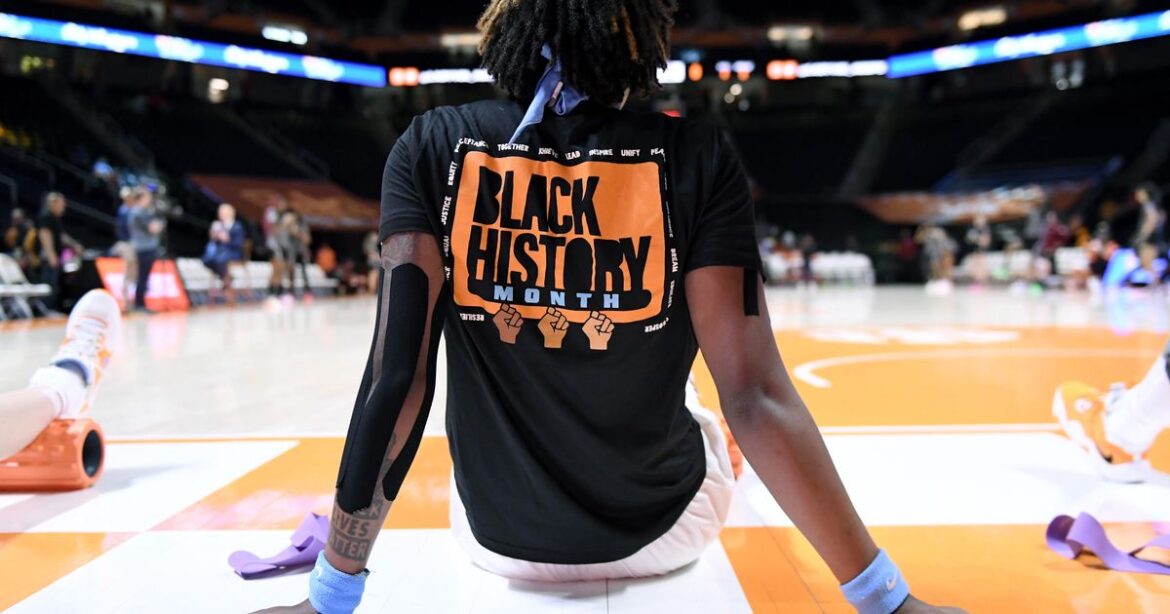People often question why Black History Month happens in February, the shortest month in the calendar year.
Historians say there’s a simple answer: Black History Month ― which began in 1926 as Negro History Week ― is in February because it coincides with the birthdays of two important figures in the abolitionist movement: President Abraham Lincoln and Frederick Douglass.
February 12 is the birth date of Lincoln, who signed the Emancipation Proclamation in 1863, freeing enslaved people in the Confederate states. February 14 is the birth date abolitionist, and orator Frederick Douglass chose for himself after escaping slavery in 1838.
“There was no sinister reason for February’s selection,” said Burnis R. Morris, a professor of journalism and mass communications at Marshall University and a biographer of Carter G. Woodson, the creator of Negro History Week who’d later be called “The Father of Black History Month.”
Morris told HuffPost, “The study of Black History has two periods: before Woodson and after Woodson.”
Woodson, who was born in 1875 in West Virginia to formerly enslaved parents, wanted to honor the heritage and achievements of Black Americans in the wake of emancipation.
Sixty years after the end of slavery, those contributions had largely been ignored in history books, or worse, distorted and misrepresented, said LaGarrett King, a professor and director of the Center for K-12 Black History and Racial Literacy Education at the University at Buffalo.
“When Black people’s history was written, the narratives painted Black people as savages who had to be saved by Europeans,” he told HuffPost. “Additionally, slavery was written as a sort of humane act, and it was suggested that Black people were actually happy during enslavement.”
Heritage Art/Heritage Image via Getty Images // Bettmann via Getty Images
As founder of the Association for the Study of Negro Life and History, Woodson was intent on changing that perception and altering the trajectory of Black Americans.
“He wrote five Black history textbooks, conducted home study courses, and developed a teacher’s journal to help teachers teach Black history,” King said.
Woodson was bullheaded on his mission, said Morris, because “he feared Blacks would be candidates for extermination if they and the broader public did not learn about their past.”
Through the books and articles he and his associates published on Black history, Woodson grabbed the attention of the nation and world.
“In his work, he emphasized the education side and also the need to improve race relations,” Morris said. “Negro History Week was widely celebrated by many Black people and the Black press. In segregated America, even white people and the mainstream press in a number of communities joined the annual celebrations.”
The creation of Negro History Week happened at an opportune, much-needed time, said Devin Fergus, a professor of history and Black studies at the University of Missouri and a John Hope Franklin fellow.
“In the broader context of the 1920s, it can be said that Negro History Week was created to push back against things like colonization, eugenics and racialized immigration policies which were affecting all folks of color who are in the U.S.,” he said.
The push for a more outsized celebration rather than just a week picked up steam as a result of the Civil Rights and the Black Power movements of the late 1960s and early 1970s, Fergus told HuffPost.

Wally McNamee via Getty Images
Black educators and students at Kent State University in Portage County, Ohio, proposed the first Black History Month in February 1969. In 1976, President Gerald Ford proclaimed it an official national celebration.
“We can seize the opportunity to honor the too-often neglected accomplishments of Black Americans in every area of endeavor through our history,” he said at the time.
Since then, every U.S. president has officially designated February Black History Month. Other countries around the world, including Canada and the United Kingdom, have followed suit: Canada celebrates in February as well, while the U.K. observes it in October.
Today, some worry that Black History Month has been tokenized and diluted. As a Washington, D.C. elementary school teacher told The Atlantic in 2016, “having a month for black history compartmentalizes the issue, as if once the month is over we can turn our attention away from it again until the next year.”
That may be a fair argument, as one month is better than rarely. In the last few years, a growing number of states, particularly Florida, have limited how schools can teach about race. Predominantly white parent school boards have removed books from the library that they say promote “critical race theory” and make white children feel inferior to minorities.

Alejandra Villa Loarca/Newsday LLC via Getty Images
“Some question Black History Month’s usefulness, but currently, Black history isn’t often taught in classrooms despite what conservative activists say,” King said.
“When it is taught, it’s typically, it is taught poorly; studies have indicated that most state social studies curriculum do not do a good job in presenting a holistic Black history education, only focusing on slavery, reconstruction, and the Civil Rights Movement,” he said.
In an ideal academic world, Black History Month should be the annual culmination of a year-long commitment to including Black history in our national story, the professor said. Woodson himself believed Black history should be studied throughout the year, not just for a scant week or month.
“The biggest misconception is that Black History Month is the time for teaching Black history,” King said. “Actually, BHM was created to be a celebration of the Black history that was taught throughout the year. February was essentially an assessment and showcase of Black history learning.”


